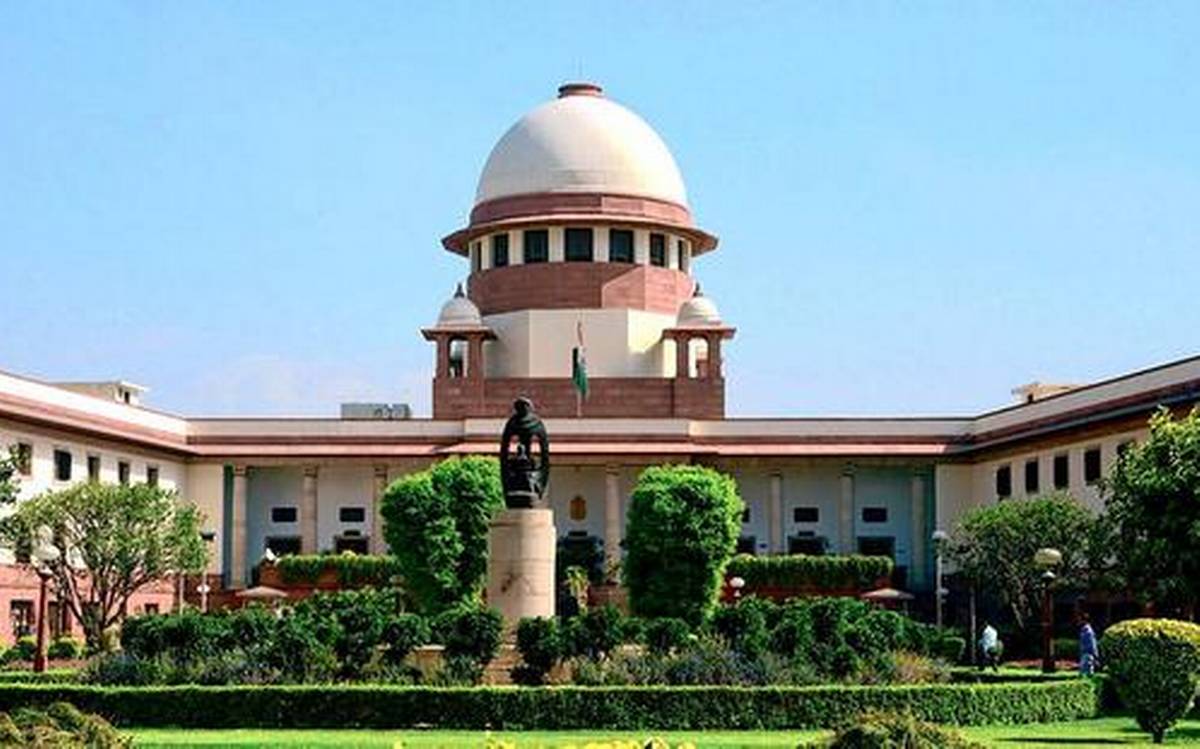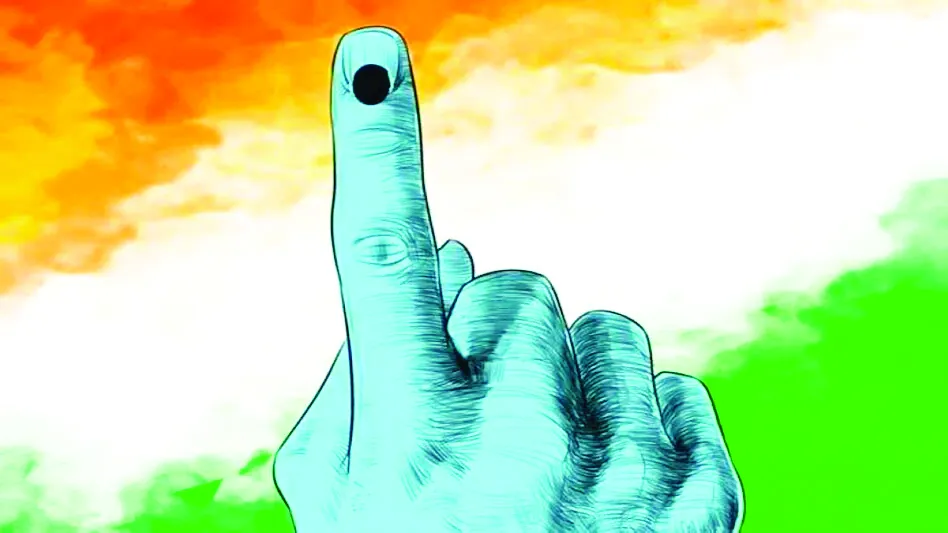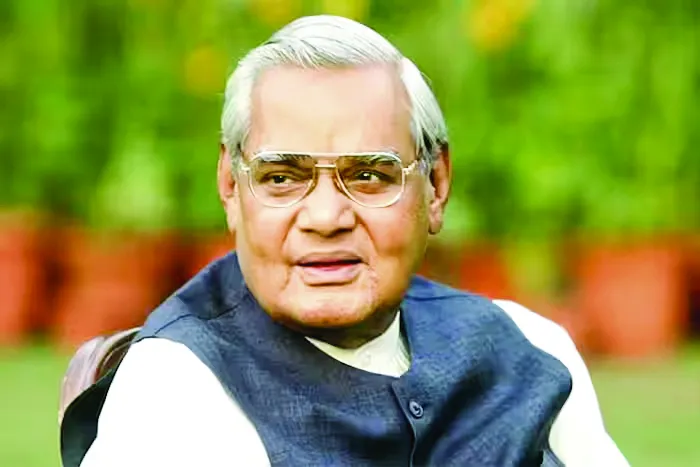In a significant development, the Modi government told the Supreme Court via an affidavit on May 9, 2022, that it has decided to re-examine and reconsider Section 124A of the Indian Penal Code (IPC) which criminalises the offence of sedition (SG Vombatkere vs Union of India). “The government of India being fully cognizant of various views being expressed on the subject of sedition and also having considered the concerns of civil liberties and human rights, while committed to maintain and protect the sovereignty and integrity of this great nation, has decided to reexamine and reconsider the provisions of Section 124A of the Indian Penal Code which can be done only before the competent forum,” the affidavit said.
The affidavit was filed in response to a batch of petitions challenging the constitutionality of the colonial provision. In the affidavit, the Modi government requested the Supreme Court not to invest its time in examining the validity of Section 124-A for the time being and to await the exercise of reconsideration being undertaken by the government of India.
The Supreme Court had while issuing notice in the matter in July 2021 questioned the Central government on whether the law was needed 75 years after independence. The Court had also sought the assistance of the Attorney General in the matter. The Court is currently considering whether the matter should be referred to a Constitution Bench of five or more judges. This is in view of the 1962 verdict of the top Court in Kedar Nath Singh versus the State of Bihar, in which a 5-judge Constitution Bench upheld the validity of Section 124-A. The current case before the apex Court is being heard by a 3-judge Bench. The Central government’s second senior-most law officer, Solicitor General, Tushar Mehta had earlier filed a note before the Court stating that the Kedar Nath Singh judgment has stood the test of time and was applied till date in tune with modern constitutional principles. The SG pointed out that only a bench of co-equal strength of Kedar Nath Singh can therefore pose any doubts on the verdict.
Beyond the semantics, it is to the Modi government’s credit that over 1500 outdated laws and over 25000 archaic compliance burdens that reeked of a colonial mindset have been scrapped since May 2014, when PM Modi stormed to power. Various offences which were causing mindless hindrances to people have been de-criminalised, including many sections of the Company Law. The Modi government, contrary to what jaded Leftist historians peddle, has always been open to both criticism and scrutiny. On sedition, concerns of civil liberties and human rights’ activists have been taken on board by PM Modi at regular intervals and the petition filed in May 2022, in the apex Court, amplifies as much.
In the Kedar Nath Singh vs State of Bihar case in 1962, a Constitution bench had upheld the sedition law. The Centre in its initial affidavit had said the Kedar Nath verdict came after testing the constitutional validity of 124-A from angles. So is the Centre now deriding the Kedar Nath case verdict? Absolutely not. All the Centre is doing now, is to ensure a fine balance between national security and free speech, within the broader framework of what the Kedar Nath verdict sought to do in any case. The direction to “re-examine and reconsider” the provisions of the sedition law came directly from Prime Minister Narendra Modi and the government will “suitably” take into account the views of stakeholders and ensure the sovereignty and integrity of the country is preserved while looking into Section 124A of the IPC, Union Law Minister Kiren Rijiju reiterated. “The government will reconsider and change the provisions as per the need of the present time. Because there are lots of views coming up,” Rijiju, further added. Clearly, PM Modi, a true champion of civil liberties, has, by putting his personal weight behind the need for whittling down the sedition law, shown why he is not only a progressive thinker but is also far more contemporary and modern than what his critics credit him with.
The Congress Party and its ecosystem of the Tukde Tukde gang infamy, have no right to give sermons to others. During the Anna movement, those who were not toeing the UPA line were subjected to bullying, harassment, intimidation and arrests. All this happened under the watchful eyes of the UPA. Needless to add, if there is one party that is the antithesis of freedom, democracy, and respect for institutions, it is the Indian National Congress. This Party has always stood with Breaking India forces and left no opportunity to divide India. Who brought in the First Amendment? None other than Pandit Nehru in 1951! It was Sangh ideologue SP Mookerjee & the Jana Sangh which stood in opposition to this measure, aimed at curtailing freedom of expression. Nehru also dismissed the democratically elected government in Kerala. It was the Indira Gandhi government that made Section 124-A a cognisable offense for the first time in India’s history. This happened in the new Code of Criminal Procedure, 1973, which came into force in 1974. Has Congress ever bothered to even express regret,for crushing the democratic ethos of this nation repeatedly? The answer is, no.
When it comes to trampling over free speech, Indira Gandhi was second to none. We all know about the horrific 1975 Emergency but does anyone also know that she imposed Article 356, over 50 times? She came up with the idea of a “committed judiciary” to weaken the Judiciary, our third pillar! What an irony that Congress acolytes are today preaching about an independent judiciary! If any government has indeed upheld the sanctity of the judiciary,it is undoubtedly, the Modi government. The UPA government has the worst track record of filing sedition cases. In 2012 alone, over 56000 people were arbitrarily detained, over 23000 were arbitrarily arrested, with over 9000 slapped with sedition charges and all this for simply protesting against an upcoming nuclear power plant that was coming up in Tamil Nadu, at that time. The debate here is not about harnessing nuclear energy for productive purposes– of course with checks and balances,nuclear energy needs to be harnessed for the greater good.The debate here is about the fact that the Congress government used the sedition law as a vicious tool to curb dissent.In sharp contrast,under the Modi government ,there were barely 326 sedition cases that were filed between 2014 and 2019.
Senior advocate Mohit Mathur said that while it falls within the Court’s domain to test the constitutionality of a legal provision whenever a challenge is raised before it, the Centre may be allowed to examine the issue at its end. Advocate Sherbir Panag, a financial crimes’ lawyer, called the Centre’s stand a “step worth being applauded” as he claimed that it is better if the law of sedition is dealt through the “legislative process” in a time-bound manner. One can argue back and forth but the hard truth is that no government in India, since independence, has come out and openly talked about a review of the sedition law that was put into effect by Thomas Macaulay, way back in 1870. Hence, for the Modi government to take the bold and progressive stance of wanting to re-examine the sedition law, speaks volumes about its commitment to free speech. Those who claim the Modi government preempted the apex Court in wanting a review of the sedition law are clearly missing the point. Do not forget that, in any case, it is the duty and the right of the Central government to frame laws and legislations. The apex Court, has the right to strike down or modify or build in statutory safeguards, as the case may be, only if the laws framed by the Central government are challenged on valid grounds.
The Supreme Court has been hearing a clutch of pleas challenging the validity of the law on sedition which has been under intense public scrutiny for its alleged misuse to settle political scores by various governments in the past. The top Court in 1962, upheld the validity of the sedition law while attempting to restrict its scope for misuse. Even in the May 2022 observation, all that the apex Court said was that, the government must seek to restrict the use and scope of the sedition law. Nowhere did the apex Court say that the sedition law stands scrapped or that it is irrelevant. Some parts of it may need a re-examination, is all that both the Modi government and the apex Court are saying, at this point.
“Whoever, by words, either spoken or written, or by signs, or by visible representation, or otherwise, brings or attempts to bring into hatred or contempt, or excites or attempts to excite disaffection towards, the government established by law in [India], shall be punished with imprisonment for life, to which fine may be added, or with imprisonment which may extend to three years, to which fine may be added, or with fine,” reads section 124-A (sedition) of the IPC. Unfortunately, the sedition law has been misused with rabid impunity by the Opposition ruled States. For instance, MP, Navneet Rana was charged with sedition, for simply wanting to recite the Hanuman Chalisa, outside Matoshree, the residence of Maharashtra’s CM, Uddhav Thackeray. How can recitation of religious texts, even if it is outside the CM’s residence, be an act of sedition? By that logic, one is tempted to ask Mr Thackeray, what about the thousands of Muslims, who offer Namaz every Friday, on roads and railway tracks and even in public toilets? If offering Namaz in a public space is not sedition, why should recitation of Hanuman Chalisa,be made into a cognizable offence? Public property including surrounding roads outside Matoshree are not private, but public spaces.
AIMIM chief Asaduddin Owaisi’s younger brother Akbaruddin Owaisi visited and offered prayers at the Mughal emperor Aurangzeb’s tomb on May 12, 2022. Younger Owaisi’s act of bowing before Aurangzeb to show respect is an act of betrayal and insult to Hindus. How can we forget history?
Despotic and rabid bigot, Auranganzeb, had harassed and schemed against the great warrior king Chhatrapati Shivaji Maharaj. He brutally tortured and killed Sambhaji Maharaj.
It is not surprising that Owaisi went to Aurangzeb’s tomb. The thinking of Nizam, Razakars (the paramilitary volunteer force deployed by the Nizam of Hyderabad to resist the princely State’s integration with India during 1947-48) and the earlier Islamic dynasties, is much the same. Aurangzeb, in his barbaric and bloodthirsty, 49-year rule, slaughtered to death 4.6 million Hindus and forcibly converted or took captive, an equal number, besides of course imposing the discriminatory and draconian, Jiziya tax on non-Muslims. If reciting Hanuman Chalisa qualifies as sedition, should younger Owaisi’s act not be seen as a deliberate act to provoke disaffection towards the Indian State, moreso when the Gyanvapi mosque videography issue is underway. The Rana couple were later granted bail after a Court observed that mere expression of derogatory or objectionable words was not sufficient ground to invoke the sedition charge. But the moot point is, those who accuse the BJP of scuttling free speech, are actually the very lot that has zero tolerance to any narrative that does not suit their Hinduphobic taste buds. The Congress and its allies would therefore do well to stop waxing eloquent about the virtues of free speech, because they don’t believe in it.
The BJP has always endeavored to strike a balance between Article 19, that is, freedom of speech and maintaining public order. While Article 19 (1) (a) guarantees freedom of speech and expression, equally, Article 19 (2), speaks of reasonable restrictions. In fact, every fundamental right is subject to reasonable restrictions pertaining to public order, morality, and health.
The Congress Party has time and again abused the sedition law for unfair advantage. In 2019, for instance, an innocent man was charged by the Bhupesh Baghel-led government for sedition for simply raising his voice against the infuriatingly repeated electricity power cuts in Chhattisgarh. More recently, the Congress Party, in Rajasthan, to stifle the voice of the media, invoked sedition charges against a news anchor, Mr. Aman Chopra and continued to hound him, despite a Court order to the contrary. Only last week, Marathi actress Ketaki Chitale was booked and arrested for a purportedly derogatory Facebook post against Sharad Pawar, by the MVA regime. BJP leader, Vinayak Ambekar was also beaten up by NCP goons, for an innocuous Facebook post. Also, how can one forget rabble-rouser Mamata Banerjee, whose corrupt TMC regime, arrested Jadavpur University professor, Ambikesh Mahapatra in 2012, for simply forwarding a harmless spoof on Mamata.
In a historic development, the Supreme Court on May 12, 2022, ordered that the 152-year-old sedition law under Section 124A of the Indian Penal Code should be effectively kept in abeyance till the Modi government reconsiders the provision. In an interim order, the Court urged the Centre and the State governments to refrain from registering any FIRs under the said provision, while it was under re-consideration.
In the final analysis, while by July 2022, things pertaining to the sedition law will be a lot clearer, what cannot be denied is the fact that for decades, the Congress Party which ruled India for the longest time, misused and abused this law to checkmate dissent and to clip the wings of political opponents. Sometimes, Congress went to ridiculous lengths to checkmate dissent, the arrest of cartoonist Aseem Trivedi in 2012, being one such example. Trivedi was later pardoned once the Modi government took charge in 2014. On May 15, 2022, at the “Chintan Shivir” of the Congress Party in Udaipur, Rahul Gandhi said, the only alternative to the conversation between people, is violence between people. The incompetent Congress scion further added that the Modi government is encouraging violence by muzzling democratic institutions. Well, maybe Rahul is suffering from selective amnesia and needs to be reminded that be it bringing in the draconian 66-A in 2008 to curb free speech, or the Maintenance of the Internal Security Act (MISA) or overturning the 1985 Shah Bano judgment of the Supreme Court, if there is one Party that repeatedly made a mockery of India’s electoral process and the judiciary, it was the Congress Party.
The Maintenance of Internal Security Act (MISA) was a controversial law passed by the Indian parliament in 1971, giving the administration of Rahul Gandhi’s grandmother, Indira Gandhi, very broad powers – indefinite preventive detention of individuals, search and seizure of property without warrants, and wiretapping – in the quelling of civil and political disorder in India, as well as countering foreign-inspired sabotage, terrorism, subterfuge, and threats to national security. Under the garb of quelling terrorism, however, the MISA was used with brazen impunity to hound free-thinking and curb the voice of free thinkers, by Indira. The law was amended several times during the subsequently declared national emergency (1975–1977) and used for quelling political dissent. Finally, it was repealed in 1977, when Indira Gandhi lost the 1977 Indian general election and the Janata Party came to power. To cut to the chase, therefore, it is preposterous to draw a false equivalence between Congress and the BJP. While the BJP has used the sedition law with great restraint and very sparingly in only the rarest cases, Congress used the sedition law as an instrument of vendetta politics.
Sedition law is very, very old but is it time to completely abandon it? The answer is, no. Don’t forget, the catch here is, to use it sparingly. Should it be used against those protesting constructively against government policies? No. Should it be used against those seeking to conspire against the government of the day, in such a way that it harms the country’s territorial integrity? Certainly yes. So known Maoist sympathiser, Binayak Sen, should certainly be behind bars for sedition and so should Sharjeel Imam, who sought to cut off “the chicken’s neck” from the rest of India. The lobby that says the BJP is as bad as the Congress, as both have misused the sedition law, are woefully wrong. The BJP and the Modi government have faced vitriolic opposition bordering on the defamatory and in many cases very perjurious too. Yet, PM Modi, as is typical of him, has always shown extraordinary grace and that is precisely the reason,no sedition charges were slapped against those protesting at Kundli, Singhu and Tikri borders, though their actions often bordered on the grossly unacceptable, given that often during these protests anti-India slogans were raised and Bhindrawale posters were flashed. Discretion is the better part of valour, they say. And the inclusive Modi government has showcased why a re-examination of the sedition law, is the need of the hour, without dismantling it, so that the law is made stronger and more in line with contemporary India’s democratic ethos. Martin Luther King Jr. famously said: “Our lives begin to end the day we become silent about the things that matter”. Indeed, PM Modi’s historic decision to seek a re-examination of the archaic sedition law qualifies as a transformative moment, in the quest for that fine balance between free speech and national security.
The writer is an Economist, National Spokesperson of the BJP, and the Bestselling Author of ‘The Modi Gambit’. Views expressed in the piece are the writer’s personal.












